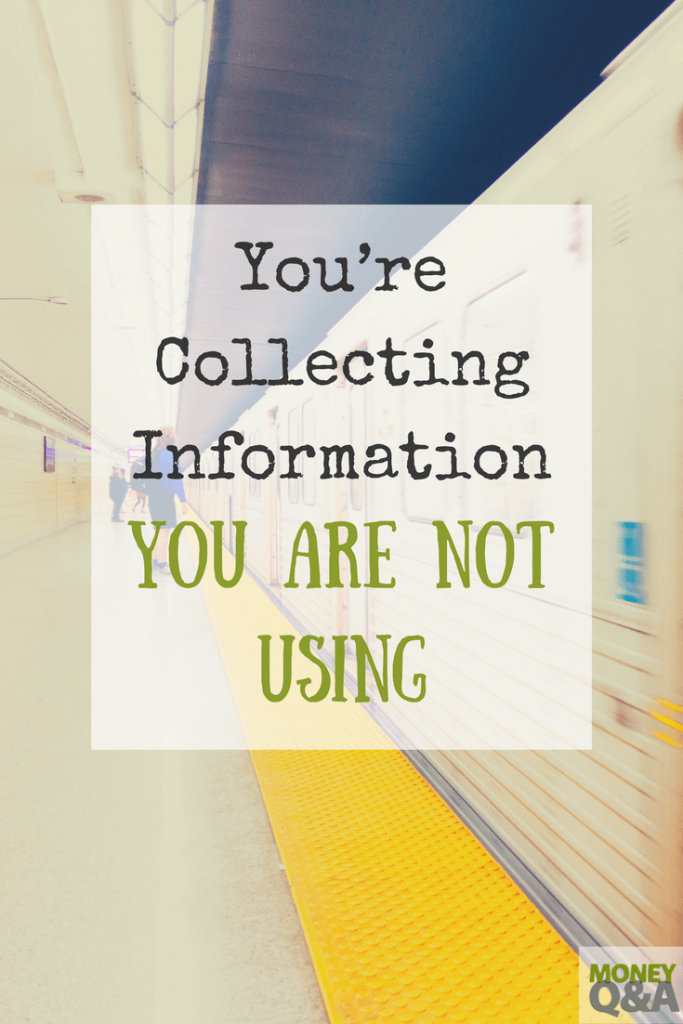
We all understand that companies collect information on our behaviors, our shopping patterns and the like. But we collect data about ourselves, too. The problem is that we’re not analyzing much of it. And we’re missing a big opportunity to improve our lives and our finances.
A friend was recently asking me about Fitbit. Most of my friends know that I’m a huge fan of Fitbit, those little pedometers on steroids, that help you monitor the number of daily steps you take and things like calories burned, food consumption, weight, sleep patterns and other health statistics.
I love the service and what it tells you about your health. My friend was curious about how it can tell if you got a good night’s sleep. I told him that it’s a cool feature.
Monitoring Your Sleep Is All the Rage
A lot of very cool smartphone apps, in addition to Fitbit, monitor your sleep patterns. Studies have shown that there is an optimal time to wake up at your lightest phase of sleep based on your REM sleep patterns, which ebb and flow throughout the night over the course of a few hours each.
One app, Sleep Time by Azumio, provides you with stunning graphs and a ream of data about how well you slept the night before. But I told my friend that I don’t really know what to do with all of the information. Should I go to bed earlier? Should I stop watching television in bed before I fall asleep?
A lot of questions arise from having all of this data at your fingertips. And the same is true with our finances. We often go to great lengths preparing our family’s monthly written budget or tracking our net worth. Many credit card companies provide incredible pie charts and graphs about your spending.
So what should we do with all of this new information? Are we wasting most of it? How can we put it to work for us instead?
Make Some New Habits with the Data
“We take the time to construct a detailed budget or use an online budgeting tool, but few of us ever make concrete changes that better our financial lives,” says Grant A. Webster, a certified financial planner with AKT Wealth Advisors.
The simple answer is that you have to act on the information. Start with small steps. If you analyze your budget and realize that you’re spending too much in many categories, pick one to tackle in the first month. For example, if you realize that you’re eating out too much in restaurants, make it a goal to skip going out for a month.
While there is truth in repetition forming a habit, the timespan is different for everyone.
The same is true for making a new financial habit. After a month of tackling one category in your budget, you should look towards the next category your struggling with in your overspending. Like eating an elephant, take tiny bits and help reinforce building new habits.
Neil Maxwell, a fee-only financial planner with Button Financial in Denver, says that building a new habit should be easy if it is something that you truly want to do. If you are collecting information and not acting on it, maybe you don’t need to collect it in the first place. Otherwise simply recognizing that you want to make a change in your life is a powerful force that can help you change.
Find an Accountability Partner to Help
If the sheer amount of information available overwhelms you, Rupert recommends that you seek help from a trusted financial planner or a life coach. (Similarly, people looking to lose weight join a group like Weight Watchers International (WTW) or hire a personal trainer to help them).
Have you sat down with your spouse to discuss your finances? Many couples make this classic mistake. My wife and I have quarterly meetings to discuss how our family’s net worth is growing, what we need to focus our investments on, and where we are overspending in our budget categories.
We are collecting information and a lot of data about our lives. Whether it is how many steps we take, how well we sleep at night, or how closely we are following our family’s monthly budget, you should scrutinize and act on the data you collect.
Do you collect a lot of data that you don’t use? How do you transition from simply collecting information to acting on it?
This article was first featured on AOL Daily Finance and has been reprinted with permission.

